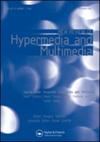Inferring contextual preferences using deep encoder-decoder learners
IF 0.8
4区 计算机科学
Q3 COMPUTER SCIENCE, INFORMATION SYSTEMS
引用次数: 8
Abstract
ABSTRACT Context-aware systems enable the sensing and analysis of user context in order to provide personalised services. Our study is part of growing research efforts examining how high-dimensional data collected from mobile devices can be utilised to infer users’ dynamic preferences that are learned over time. We suggest novel methods for inferring the category of the item liked in a specific contextual situation, by applying encoder-decoder learners (long short-term memory networks and auto encoders) on mobile sensor data. In these approaches, the encoder-decoder learners reduce the dimensionality of the contextual features to a latent representation which is learned over time. Given new contextual sensor data from a user, the latent patterns discovered from each deep learner is used to predict the liked item’s category in the given context. This can greatly enhance a variety of services, such as mobile online advertising and context-aware recommender systems. We demonstrate our contribution with a point of interest (POI) recommender system in which we label contextual situations with the items’ categories. Empirical results utilising a real world data set of contextual situations derived from mobile phones sensors log show a significant improvement (up to 73% improvement) in prediction accuracy compared with state of the art classification methods.使用深度编码器-解码器学习器推断上下文偏好
上下文感知系统能够感知和分析用户上下文,以便提供个性化服务。我们的研究是越来越多的研究工作的一部分,研究如何利用从移动设备收集的高维数据来推断用户随着时间的推移而学习的动态偏好。我们提出了在特定情境下推断喜欢的物品类别的新方法,通过对移动传感器数据应用编码器-解码器学习器(长短期记忆网络和自动编码器)。在这些方法中,编码器-解码器学习器将上下文特征的维度降低为随时间学习的潜在表征。给定来自用户的新的上下文传感器数据,从每个深度学习器中发现的潜在模式用于预测给定上下文中喜欢的物品的类别。这可以极大地增强各种服务,如移动在线广告和上下文感知推荐系统。我们用一个兴趣点(POI)推荐系统来展示我们的贡献,在这个系统中,我们用项目的类别标记上下文情况。利用来自手机传感器日志的真实世界情境数据集的实证结果显示,与最先进的分类方法相比,预测精度有显著提高(高达73%的提高)。
本文章由计算机程序翻译,如有差异,请以英文原文为准。
求助全文
约1分钟内获得全文
求助全文
来源期刊

New Review of Hypermedia and Multimedia
COMPUTER SCIENCE, INFORMATION SYSTEMS-
CiteScore
3.40
自引率
0.00%
发文量
4
审稿时长
>12 weeks
期刊介绍:
The New Review of Hypermedia and Multimedia (NRHM) is an interdisciplinary journal providing a focus for research covering practical and theoretical developments in hypermedia, hypertext, and interactive multimedia.
 求助内容:
求助内容: 应助结果提醒方式:
应助结果提醒方式:


